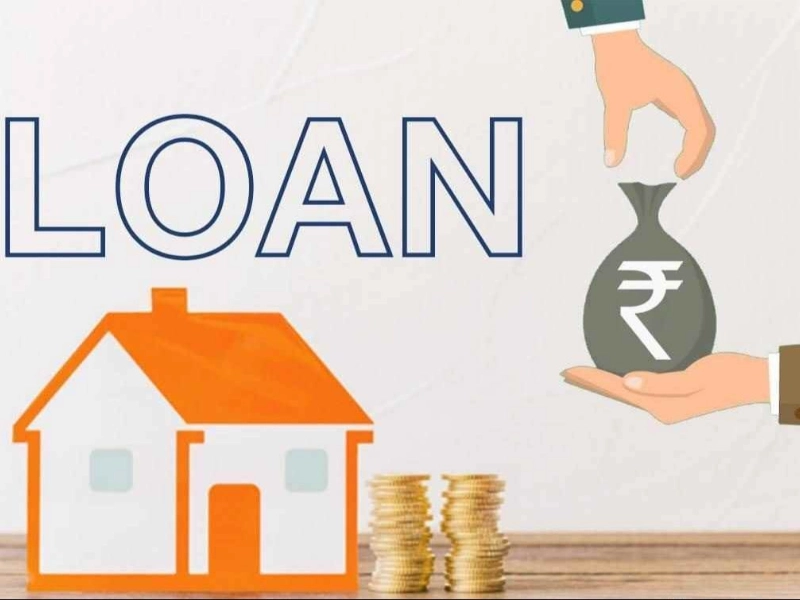For homeowners looking to lower their monthly mortgage payment by a lump sum, mortgage recasting is a possibility. It functions by extending the loan's duration while reducing the monthly payment. Recasting carries costs, and lenders might anticipate a particular level of principal reduction. Furthermore, recasting is usually not applicable to government loans guaranteed by Ginnie Mae, such as FHA and VA loans.
 For people who wish to shorten their loan term, cut their monthly payments, or pay less interest on their mortgage, mortgage recasting is a fantastic alternative. Through recasting, borrowers can apply any lump sum to their principal; the lender will then adjust their payment plan to reflect the reduced amount they still owe.
Recasting, however, is limited to borrowers who can afford to make a sizable lump-sum payment and have a clean credit history. A fee for the service may also be assessed by some lenders, and many have minimum amounts that must be applied to the principle.
Recasting a mortgage is a great way to avoid refinancing, which usually involves credit checks, appraisals, and closing charges. Recasting can have certain disadvantages, too, so you should always think about your personal financial situation before deciding which course of action is best for you.
For people who wish to shorten their loan term, cut their monthly payments, or pay less interest on their mortgage, mortgage recasting is a fantastic alternative. Through recasting, borrowers can apply any lump sum to their principal; the lender will then adjust their payment plan to reflect the reduced amount they still owe.
Recasting, however, is limited to borrowers who can afford to make a sizable lump-sum payment and have a clean credit history. A fee for the service may also be assessed by some lenders, and many have minimum amounts that must be applied to the principle.
Recasting a mortgage is a great way to avoid refinancing, which usually involves credit checks, appraisals, and closing charges. Recasting can have certain disadvantages, too, so you should always think about your personal financial situation before deciding which course of action is best for you.
 Recasting lowers the amount of interest you pay throughout the remaining term of your loan, which might help you pay less each month. This can be achieved by making a one-time payment toward your principal. Once recasting is finished, your lender might even let you make an early mortgage payment under certain circumstances.
Homeowners who have a sizable sum of money to put toward their loan—such as an inheritance or a bonus from their job—benefit greatly from the recasting process. However, before transferring this kind of cash toward your mortgage, it's crucial to get in touch with your lender or loan servicer. They will probably have waiting periods and minimum principle reduction requirements that change depending on the lender and mortgage.
If you are unable to meet the conditions for recasting, you should also think about refinancing or making additional payments as additional ways to reduce your mortgage. Although these options can require more labor, they might also save money in the long run by offering reduced monthly payments and peace of mind about money.
Recasting lowers the amount of interest you pay throughout the remaining term of your loan, which might help you pay less each month. This can be achieved by making a one-time payment toward your principal. Once recasting is finished, your lender might even let you make an early mortgage payment under certain circumstances.
Homeowners who have a sizable sum of money to put toward their loan—such as an inheritance or a bonus from their job—benefit greatly from the recasting process. However, before transferring this kind of cash toward your mortgage, it's crucial to get in touch with your lender or loan servicer. They will probably have waiting periods and minimum principle reduction requirements that change depending on the lender and mortgage.
If you are unable to meet the conditions for recasting, you should also think about refinancing or making additional payments as additional ways to reduce your mortgage. Although these options can require more labor, they might also save money in the long run by offering reduced monthly payments and peace of mind about money.
 Mortgage recasting can lower your monthly payment as well as the total amount of interest you pay over the course of the loan. However, bear in mind that recasting your mortgage usually requires a sizable lump sum payment, which could completely deplete your necessary savings.
Mortgage recasting typically carries a cost and is subject to minimum principal reduction requirements from some lenders and loan servicers. Additionally, if you have lately skipped or made late payments on your loan, you might not be allowed to recast it.
Recasting is a fantastic way for homeowners to reduce their monthly payments after receiving a big cash influx, such as an inheritance or a work bonus. For those who must purchase a new residence before the sale of their current residence, it's also a tempting course of action. Recasting isn't appropriate for everyone, so carefully consider the advantages and disadvantages.
Mortgage recasting can lower your monthly payment as well as the total amount of interest you pay over the course of the loan. However, bear in mind that recasting your mortgage usually requires a sizable lump sum payment, which could completely deplete your necessary savings.
Mortgage recasting typically carries a cost and is subject to minimum principal reduction requirements from some lenders and loan servicers. Additionally, if you have lately skipped or made late payments on your loan, you might not be allowed to recast it.
Recasting is a fantastic way for homeowners to reduce their monthly payments after receiving a big cash influx, such as an inheritance or a work bonus. For those who must purchase a new residence before the sale of their current residence, it's also a tempting course of action. Recasting isn't appropriate for everyone, so carefully consider the advantages and disadvantages.
 Because a mortgage recast enables borrowers to reduce their monthly payments, it is frequently a desirable alternative. Nevertheless, it's crucial to consider the advantages of a recast in light of your overall financial objectives. Recasting, for instance, can lower your monthly payment but may not result in a reduction of the total interest you pay over the course of the loan.
If you wish to put a windfall or substantial cash contribution toward the principal of your mortgage and desire to do so, Shenton suggests that you consider a recast. To qualify for a recast, keep in mind that a lender can need a sizeable lump sum, and there might be a waiting time that differs depending on the loan servicer.
Recasting usually doesn't need a credit check or appraisal and is a simpler process than refinancing. The interest rate on your mortgage can remain the same as well. For these reasons, it's something to think about if you need to reduce other spending or are struggling to make your monthly payments.
Because a mortgage recast enables borrowers to reduce their monthly payments, it is frequently a desirable alternative. Nevertheless, it's crucial to consider the advantages of a recast in light of your overall financial objectives. Recasting, for instance, can lower your monthly payment but may not result in a reduction of the total interest you pay over the course of the loan.
If you wish to put a windfall or substantial cash contribution toward the principal of your mortgage and desire to do so, Shenton suggests that you consider a recast. To qualify for a recast, keep in mind that a lender can need a sizeable lump sum, and there might be a waiting time that differs depending on the loan servicer.
Recasting usually doesn't need a credit check or appraisal and is a simpler process than refinancing. The interest rate on your mortgage can remain the same as well. For these reasons, it's something to think about if you need to reduce other spending or are struggling to make your monthly payments.